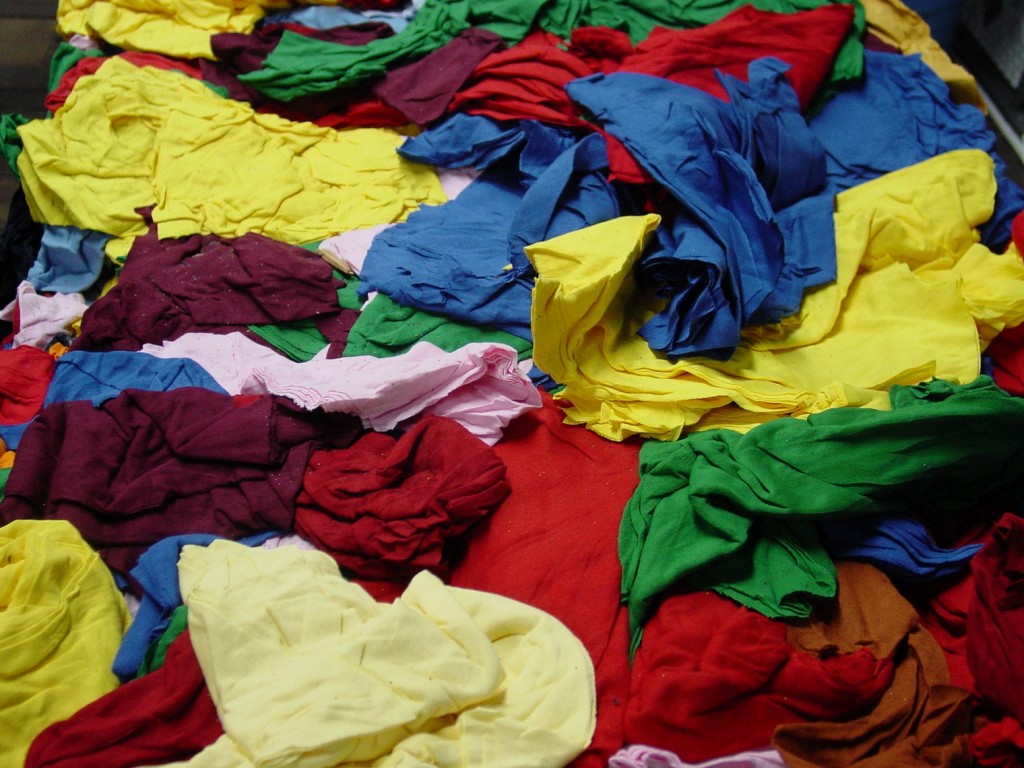Secondary Materials and Recycled Textiles Association debunks textile waste dilemma
SMART is spreading the truth about textile recycling on Global Recycling Day

The Secondary Materials and Recycled Textiles (SMART) Association is celebrating Global Recycling Day on March 18, organized by the Bureau of International Recycling (BIR), by providing education and clarification on textile reuse and recycling. The day challenges consumers to make at least one change to their recycling habits, and SMART encourages the public not to forget about textile waste.
SMART representatives encourage the community to educate their friends, neighbors and colleagues on the textile reuse and recycling process - it is multi-faceted, and many people are misinformed.
"We receive many calls from individuals who call their local thrift store and are told their textiles would just be thrown away," says Executive Director of SMART, Jackie King. "It goes far beyond the person answering the phone - thrift stores will ensure your donation is either resold or recycled, but not all of their team members may be aware of this process."
The myths about textile recycling have a dire impact on the planet - the average U.S. citizen throws away 81 pounds of clothing each year. Out of this waste, 95 percent could have been recycled, yet only 15 percent actually gets donated or recycled, with a staggering 85 percent of textile waste ending up in landfills.
So, how does the textile recycling process truly work? SMART member companies purchase excess textile donations from charities and commercial sources (i.e. nonprofits, thrift stores, hospitals, hotels and industrial laundries). The purchase of unusable donations provides additional funds to charitable organizations and serves as a critical source of revenue to support their ongoing, community-based programs.
Clothing collection bin programs are another convenient way consumers are able to recycle unwanted clothing and textiles. SMART encourages the public to educate themselves before utilizing a local clothing collection bin. Consumers should understand whether the bin operator is a for-profit or nonprofit organization, they should be able to contact the operator and/or charitable partner and they should observe that the bin is well-maintained (i.e. the area around the bin is neat and clean).
SMART companies sort and grade the used clothing based on quality, condition, and type. Once sorted, the used clothing and textiles are reused and recycled in one of the following manners:
• 45 percent is re-used as apparel. These items are generally processed into large bales that are then sold in the U.S. to the secondhand clothing industry or are exported to emerging market nations where demand for top quality secondhand clothing is particularly high.
• 30 percent of the recovered textiles are cut into wiping rags or polishing cloths that are then used in commercial and industrial settings.
• 20 percent is reprocessed into its basic fiber content. The fibers are then remanufactured to create furniture stuffing, upholstery, home insulation, automobile sound-proofing, carpet padding, building materials and various other products.
• Five percent is unusable. If the textiles are wet, moldy or contaminated with solvents they are not fit for recycling and are discarded.
Any clothing item or household textile (bed linens, towels, curtains, stuffed animals, purses, shoes, etc.) can be reused and recycled as long as it is dry and has no odor. Even if the item is stained, torn, overly worn or out-of-date, do not throw it away; it has a use in the textile reuse and recycling industry.
Established in 1932, the Secondary Materials and Recycled Textiles Association (SMART) is an international nonprofit trade association that strengthens the economic opportunities of its diverse membership by promoting the interdependence of the for-profit textile recycling industry segments and providing a common forum for networking, education and trade. SMART members use and convert recycled and secondary materials from used clothing, commercial laundries and non-woven, off spec material, new mills ends and paper from around the world. SMART member companies create thousands of jobs worldwide, proving each day you can make money by being social responsible.
Global Recycling Day is an initiative of the Bureau of International Recycling (BIR). BIR is the global federation of the recycling industry, representing the interests of the global industry. One of BIR's key objectives is to promote recycling globally - showcasing its benefits to industry, policy makers and the wider community.
2018 marks the 70th anniversary of BIR (indeed 18th March is its 70th birthday), a landmark year in which to create a day which recognised the vital role recycling and the industry plays in protecting the planet.
The first ever Global Recycling Day will unite people across the world, highlighting the need to conserve our six primary resources (water, air, coal, oil, natural gas and minerals) and celebrating the power of the newly termed "Seventh Resource"- the goods we recycle every day. The new initiative is the brain child of Ranjit Baxi, who announced his vision for a day dedicated to recycling at the inauguration of his Presidency at BIR's 2015 Dubai Convention.
Global Recycling Day will be a day of action, aimed at building a global approach towards recycling, calling on world leaders, international businesses, communities and individuals to make seven clear commitments in their approach to recycling. Consumers are also being asked to ask themselves some key questions about recycling, to think of it in a new way.
www.globalrecyclingday.com.
Company info
3465 Box Hill Corporate Center Drive, Suite H
Abingdon, MD
US, 21009
Website:
smartasn.org



